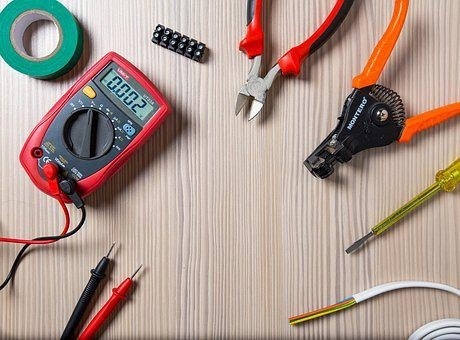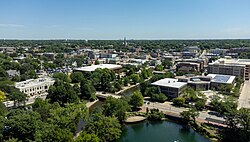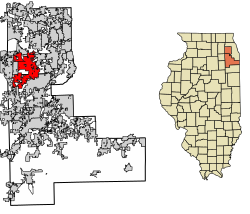Electrician New Lenox IL
Electrician New Lenox
Insuring an electrician is a must if you plan to have them perform electrical work in the home. Ask for their insurance and license. It's not required in every state but it's a good idea to check before you hire an electrician. Because electricians often work as independent contractors, they may not have insurance that covers any possible accidents.
It is important to verify that they are covered. Although you may not need it, this insurance can provide protection against any unfortunate circumstances. Insure them with professional indemnity, and liability insurance. These policies will protect your assets in the event that you are hurt. Verify their credentials. You should also verify their qualifications and license.

Electricians New Lenox
There is a difference between an electrician and an electrical wiring contractor. Electrical work is a form of construction, so you need a licensed and certified electrician to complete the project. Electrical wiring contractors, on the other hand, are the ones who do the work. The job duties of each are slightly different, but they all have a similar set of qualifications. Read on to find out which one is right for you.
The National Electrical Code requires that an electrician have at least two years of on-the-job training before he or she can earn their master license. The program generally takes four to five years, and apprentices must be at least 18 years old to qualify. Apprentices must also have completed a year of algebra in high school and pass an aptitude test. In addition, apprentices must undergo a drug and alcohol screening. If an apprentice is hired before being fully licensed, he or she must pass a criminal background check and a drug and alcohol testing.
Electrician in New Lenox
If you're planning to hire an electrician to complete electrical work, you should first know the cost. There are several different costs involved. First, there are the licensing fees. Each license costs around $720. This fee is valid for two years and is payable to the state registrar of contractors. Once you have your license, you don't need to continue your education because you can renew it every two years. Second, you should look for a licensed electrician with a good rating.
There are two types of electricians: an electrician and an electric wiring contractor. Because electrical work is considered a type of construction, it requires a licensed electrician. They are electrical wiring contractors. While each one has a different job, all of them have the same qualifications. Continue reading to discover which one is right.


Electricians New Lenox
An extensive inspection of your electrical system can identify potential problems that could cause costly repairs. This service can be charged by an electrician at a cost of between $100 and $400. This service is usually required after an electrical panel has been replaced or upgraded. Additional costs may include new wiring or the installation of switches and lighting fixtures. The cost of an electrical inspection can vary depending on how complex your home's wiring system is. Learn more about home electrical inspections, and the benefits they offer.
Electrical contractors are highly qualified professionals who have extensive experience in this field. They have extensive experience in the electrical industry and are able to provide comprehensive reports that help you understand the risks and complexities involved with wiring and other electrical systems. Electricity inspections are required by law. They can vary greatly from one place to the other. An electrician could be licensed in one jurisdiction but not another. It is essential to understand what you are getting before you hire anyone to inspect your home.
Electricians in New Lenox
Ask for references from clients who have worked on similar projects as yours. Referees can provide information about the quality and accuracy of the work performed by an electrician. This includes how wires were labeled, and how they are anchored. You might also ask for photos of completed work to ensure that the electrician adheres strictly to safety regulations. You should expect the electrician to be able to provide this information.
Generally, electricians charge anywhere from $50 to $100 per hour for their services. The cost for a single electrical project can range from $162 to $522. However, the actual cost of electrical work depends on the type of project, experience and license of the electrician. In addition, it's important to remember that an old electrical system simply can't keep up with modern electronics.
Electrician New Lenox IL
Electrician New Lenox IL
The Electrical Contractors Licensing Board investigates all complaints against them. A hearing will be held before an Administrative Law Judge if a complaint is filed. The hearing will gather evidence and decide if disciplinary action is necessary. An electrical contractor may need to hire a defense lawyer in order to protect their license. An experienced lawyer can help you avoid lengthy investigations.
When choosing an electrician, there are many things to consider, such as their skill level, education, and experience. An electrician should not only have a high school diploma, but also have a valid driver's license and a good grade on algebra. A good electrician must also be able to work with a group of people, solve problems, and manage multiple tasks. He should also be fit and have good hand-eye coordination. An electrician must be able and willing to work long hours on the job.
Electrician New Lenox Illinois
Online reviews can be a great way to see what others think about potential electricians. These reviews can be especially helpful if you've had a good experience with another electrician. To get an idea of the electrician's performance, you could also contact their references. You should ask for references from past clients. For a deeper understanding of the company, it is worth reading reviews from customers online.
Using social media to promote your electrical business is an excellent way to build a reputation and build a rapport with your community. Social media users closely monitor local businesses and will unfollow those that do not meet their expectations. According to a study, 56% of these users will leave a business that offers poor customer service. Social media reviews will provide potential customers with valuable information on the quality of the services provided by your electricians.
About Naperville Illinois
Naperville, Illinois
|
Naperville, Illinois
|
|
|---|---|
| City of Naperville | |

Aerial view of downtown Naperville.
|
|
| Motto:
Great Service – All the Time
|
|

Location of Naperville in Will and DuPage counties in Illinois
|
|
Coordinates:  41°44′54″N 88°09′57″WCoordinates: 41°44′54″N 88°09′57″WCoordinates:  41°44′54″N 88°09′57″W 41°44′54″N 88°09′57″W |
|
| Country | United States |
| State | Illinois |
| Counties | DuPage, Will |
| Townships | Dupage: Lisle, Milton, Naperville, Winfield, Will: DuPage, Wheatland |
| Settled | 1831 |
| Incorporated | February 7, 1857 (Village) March 17, 1890 (City)[1][2] |
| Named for | Joseph Naper |
| Government | |
| • Type | Council–manager |
| • Mayor | Steve Chirico (R) |
| Area | |
| • Total | 39.70 sq mi (102.81 km2) |
| • Land | 39.11 sq mi (101.29 km2) |
| • Water | 0.59 sq mi (1.52 km2) |
| Elevation | 702 ft (214 m) |
| Population
(2020)
|
|
| • Total | 149,540 |
| • Density | 3,823.57/sq mi (1,476.29/km2) |
| Demonym | Napervillian[4] |
| Time zone | UTC−6 (CST) |
| • Summer (DST) | UTC−5 (CDT) |
| ZIP Codes |
60540, 60563–60565, and P.O. box only 60566–60567
|
| Area codes | 630 and 331 |
| FIPS code | 17-51622 |
| GNIS feature ID | 2395147[5] |
| Website | www |
Naperville (/ˈneɪpərˌvɪl/ NAY-pər-vil) is a city in DuPage and Will counties in the U.S. state of Illinois. It is in the Chicago metro area, 28 miles (45 km) west of the city.
Naperville was founded in 1831 by Joseph Naper. The city was established by the banks of the DuPage river, and was originally known as Naper's Settlement. By 1832, over 100 residents lived in Naper's Settlement. In 1839, after DuPage County was split from Cook County, Naperville became the county seat, which it remained until 1868. Beginning in the 1960s, Naperville experienced a significant population increase as a result of Chicago's urban sprawl.
As of the 2020 census, its population was 149,540,[6] making it the state's fourth-most populous city. Naperville's largest employer is Edward Hospital, with 4,500 employees.
Naperville is home to Moser Tower and Millennium Carillon. It is one of the four largest carillons in the world. Naperville is also home to an extensive parks and forest preserve network, including Centennial Beach. Naperville has two school districts, 203 and 204. It also has media outlets, like NCTV17. Naperville has a train station served by Amtrak and Metra.
About Naperville Illinois
Naperville, Illinois
|
Naperville, Illinois
|
|
|---|---|
| City of Naperville | |

Aerial view of downtown Naperville.
|
|
| Motto:
Great Service – All the Time
|
|

Location of Naperville in Will and DuPage counties in Illinois
|
|
Coordinates:  41°44′54″N 88°09′57″WCoordinates: 41°44′54″N 88°09′57″WCoordinates:  41°44′54″N 88°09′57″W 41°44′54″N 88°09′57″W |
|
| Country | United States |
| State | Illinois |
| Counties | DuPage, Will |
| Townships | Dupage: Lisle, Milton, Naperville, Winfield, Will: DuPage, Wheatland |
| Settled | 1831 |
| Incorporated | February 7, 1857 (Village) March 17, 1890 (City)[1][2] |
| Named for | Joseph Naper |
| Government | |
| • Type | Council–manager |
| • Mayor | Steve Chirico (R) |
| Area | |
| • Total | 39.70 sq mi (102.81 km2) |
| • Land | 39.11 sq mi (101.29 km2) |
| • Water | 0.59 sq mi (1.52 km2) |
| Elevation | 702 ft (214 m) |
| Population
(2020)
|
|
| • Total | 149,540 |
| • Density | 3,823.57/sq mi (1,476.29/km2) |
| Demonym | Napervillian[4] |
| Time zone | UTC−6 (CST) |
| • Summer (DST) | UTC−5 (CDT) |
| ZIP Codes |
60540, 60563–60565, and P.O. box only 60566–60567
|
| Area codes | 630 and 331 |
| FIPS code | 17-51622 |
| GNIS feature ID | 2395147[5] |
| Website | www |
Naperville (/ˈneɪpərˌvɪl/ NAY-pər-vil) is a city in DuPage and Will counties in the U.S. state of Illinois. It is in the Chicago metro area, 28 miles (45 km) west of the city.
Naperville was founded in 1831 by Joseph Naper. The city was established by the banks of the DuPage river, and was originally known as Naper's Settlement. By 1832, over 100 residents lived in Naper's Settlement. In 1839, after DuPage County was split from Cook County, Naperville became the county seat, which it remained until 1868. Beginning in the 1960s, Naperville experienced a significant population increase as a result of Chicago's urban sprawl.
As of the 2020 census, its population was 149,540,[6] making it the state's fourth-most populous city. Naperville's largest employer is Edward Hospital, with 4,500 employees.
Naperville is home to Moser Tower and Millennium Carillon. It is one of the four largest carillons in the world. Naperville is also home to an extensive parks and forest preserve network, including Centennial Beach. Naperville has two school districts, 203 and 204. It also has media outlets, like NCTV17. Naperville has a train station served by Amtrak and Metra.
About Naperville Illinois
Naperville, Illinois
|
Naperville, Illinois
|
|
|---|---|
| City of Naperville | |

Aerial view of downtown Naperville.
|
|
| Motto:
Great Service – All the Time
|
|

Location of Naperville in Will and DuPage counties in Illinois
|
|
Coordinates:  41°44′54″N 88°09′57″WCoordinates: 41°44′54″N 88°09′57″WCoordinates:  41°44′54″N 88°09′57″W 41°44′54″N 88°09′57″W |
|
| Country | United States |
| State | Illinois |
| Counties | DuPage, Will |
| Townships | Dupage: Lisle, Milton, Naperville, Winfield, Will: DuPage, Wheatland |
| Settled | 1831 |
| Incorporated | February 7, 1857 (Village) March 17, 1890 (City)[1][2] |
| Named for | Joseph Naper |
| Government | |
| • Type | Council–manager |
| • Mayor | Steve Chirico (R) |
| Area | |
| • Total | 39.70 sq mi (102.81 km2) |
| • Land | 39.11 sq mi (101.29 km2) |
| • Water | 0.59 sq mi (1.52 km2) |
| Elevation | 702 ft (214 m) |
| Population
(2020)
|
|
| • Total | 149,540 |
| • Density | 3,823.57/sq mi (1,476.29/km2) |
| Demonym | Napervillian[4] |
| Time zone | UTC−6 (CST) |
| • Summer (DST) | UTC−5 (CDT) |
| ZIP Codes |
60540, 60563–60565, and P.O. box only 60566–60567
|
| Area codes | 630 and 331 |
| FIPS code | 17-51622 |
| GNIS feature ID | 2395147[5] |
| Website | www |
Naperville (/ˈneɪpərˌvɪl/ NAY-pər-vil) is a city in DuPage and Will counties in the U.S. state of Illinois. It is in the Chicago metro area, 28 miles (45 km) west of the city.
Naperville was founded in 1831 by Joseph Naper. The city was established by the banks of the DuPage river, and was originally known as Naper's Settlement. By 1832, over 100 residents lived in Naper's Settlement. In 1839, after DuPage County was split from Cook County, Naperville became the county seat, which it remained until 1868. Beginning in the 1960s, Naperville experienced a significant population increase as a result of Chicago's urban sprawl.
As of the 2020 census, its population was 149,540,[6] making it the state's fourth-most populous city. Naperville's largest employer is Edward Hospital, with 4,500 employees.
Naperville is home to Moser Tower and Millennium Carillon. It is one of the four largest carillons in the world. Naperville is also home to an extensive parks and forest preserve network, including Centennial Beach. Naperville has two school districts, 203 and 204. It also has media outlets, like NCTV17. Naperville has a train station served by Amtrak and Metra.

